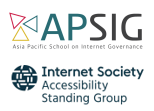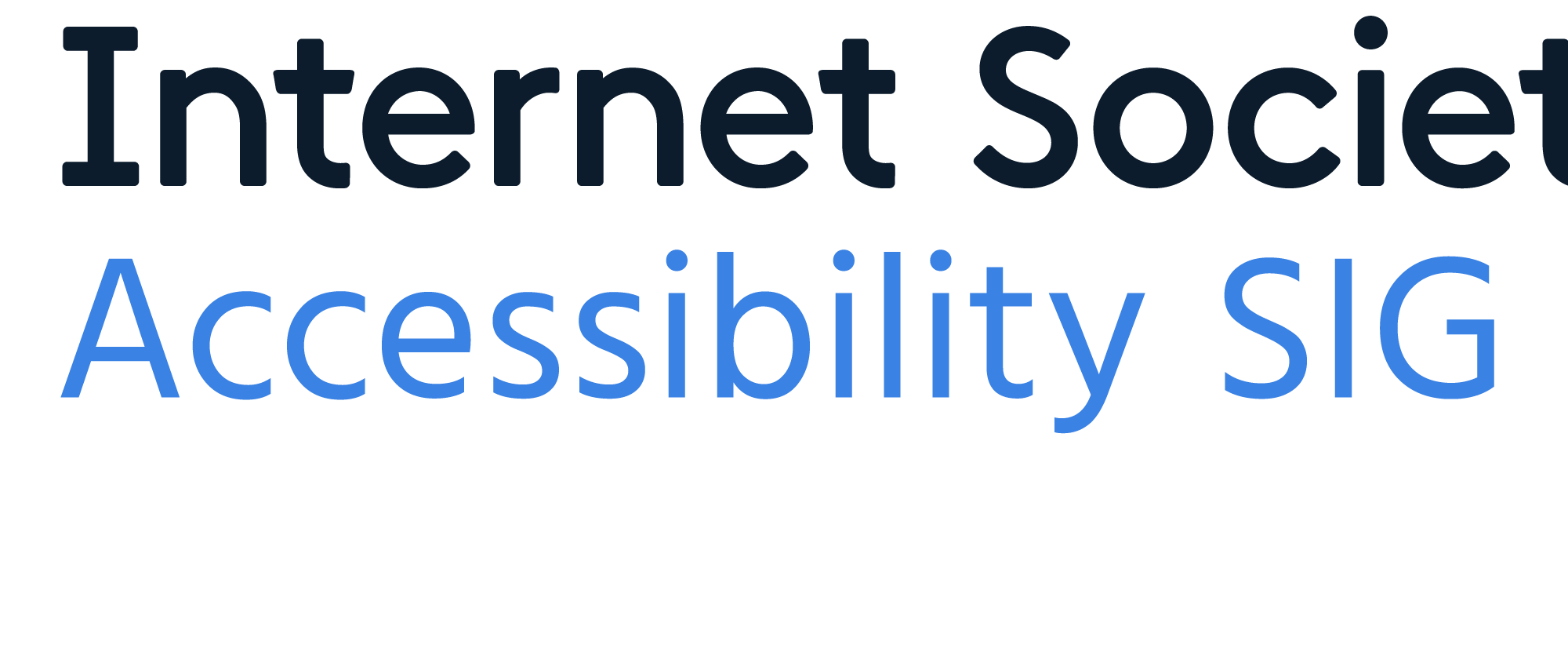 Between 24 and 27 June 2022, the Asia Pacific School of Internet Governance (APSIG) in partnership with the Internet Society Accessibility Standing Group organized the first Disability Leadership Training Workshop in Digital Rights and Internet Governance in Dhaka, with support from local hosts Internet Society Bangladesh Chapter, plus Article 19 and the APNIC Foundation.
Between 24 and 27 June 2022, the Asia Pacific School of Internet Governance (APSIG) in partnership with the Internet Society Accessibility Standing Group organized the first Disability Leadership Training Workshop in Digital Rights and Internet Governance in Dhaka, with support from local hosts Internet Society Bangladesh Chapter, plus Article 19 and the APNIC Foundation.
Invited participants from Bangladesh, India, Nepal, Pakistan, and Sri Lanka, subsequently issued the Dhaka Declaration advocating core principles for the participation of persons with disability in Internet-related decision-making processes.
-
The ratification and implementation of international instruments such as the United Nations Convention on the Rights of Persons with Disabilities, Marrakesh VIP Treaty and the UN Sustainable Development Goals (as related to persons with disability) in our region
-
The commitment by Governments to make ICT and the digital environment in our countries accessible for persons with disability by formulating and implementing legislation and regulation in accordance with the international instruments. This includes making e-government services accessible adhering to the current version of W3C’s Web Content Accessibility Guidelines. This commitment should be enforced by the governments with designated trained staff as well as reasonable financial resources. Furthermore, research and development in accessible technology is to be supported for low cost availability of digital products to persons with disability.
-
Making educational facilities and curriculum at all levels accessible through an equal delivery mechanism. Developing and delivering university courses on digital accessibility.
-
Providing an enabling environment facilitated by accessible digital resources in the public and private sector for creating employment opportunities for people with disability.
-
Businesses and the private sector making their online services accessible and adhering to the current version of W3C’s Web Content Accessibility Guidelines.
-
International donor agencies and IGOs providing accessible technologies, both hardware and software, to people with disability in their developing country programs. This includes training in the effective and safe use of the Internet.
-
The accessibility of communication, advertisement and public messaging through the provision of alternate formats and the use of inclusive design.
-
Internet Governance organizations welcoming people with disability to their deliberations, ensuring that their programs and communications are accessible, thereby enabling people with disability to participate proactively and productively in order to project their voices in global, regional and national Internet Governance processes.
Further activity (Capacity building roll-outs in 6 countries, tentatively during Oct 2022 – Mar 2023) is planned, wherein the leadership group from the Dhaka Workshop will work with their local communities to further engage with Internet Governance and related topics.



